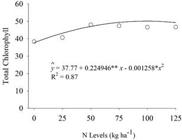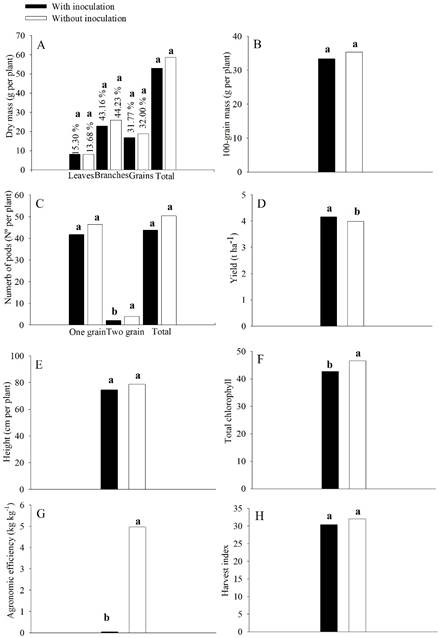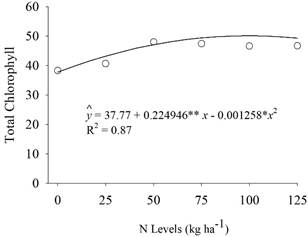ABSTRACT
Chickpea growth and yield are related to the balanced supply of N. In weathered soils, this factor depends on the biological activity of growth-promoting bacteria, the presence of diazotrophic bacteria, and the management of nitrogen fertilization. In this regard, this study aimed to evaluate the efficiency of inoculation with a mix of Bacillus spp. and N levels on chickpea cultivation. Two experiments were carried out: area 01, characterized by shortest cultivation time and area 02, with the longest cultivation time. For both studies, the experimental design was in randomized blocks with four replications arranged in a 2 x 6 factorial consisting of the absence or presence of the mix of Bacillus spp. (1 x 107 CFU per mL) from root isolates and six N levels: 0, 25, 50, 75, 100, and 125 kg ha-1. The chickpea production and yield characteristics were evaluated. In the area 01, inoculation with the mix of Bacillus spp. did not interfere with grain yield, whereas the application of lower N levels (25 kg ha-1) increased the dry mass of branches, grains, total dry mass, and yield (4.17 t ha-1). In contrast, in the area 02, nitrogen fertilization increased the chlorophyll index but did not interfere with the remaining production variables, whereas inoculation with Bacillus spp. increased chickpea yield by 4%, resulting in a grain harvest of 4.16 t ha-1. Therefore, inoculation of chickpea seeds with the mix of Bacillus spp. is recommended in soils with long-time cultivation of agricultural species.
Index terms:
Cicer arietinum L.; growth-promoting bacteria; agricultural yield.

 Thumbnail
Thumbnail
 Thumbnail
Thumbnail
 Thumbnail
Thumbnail
 Thumbnail
Thumbnail



